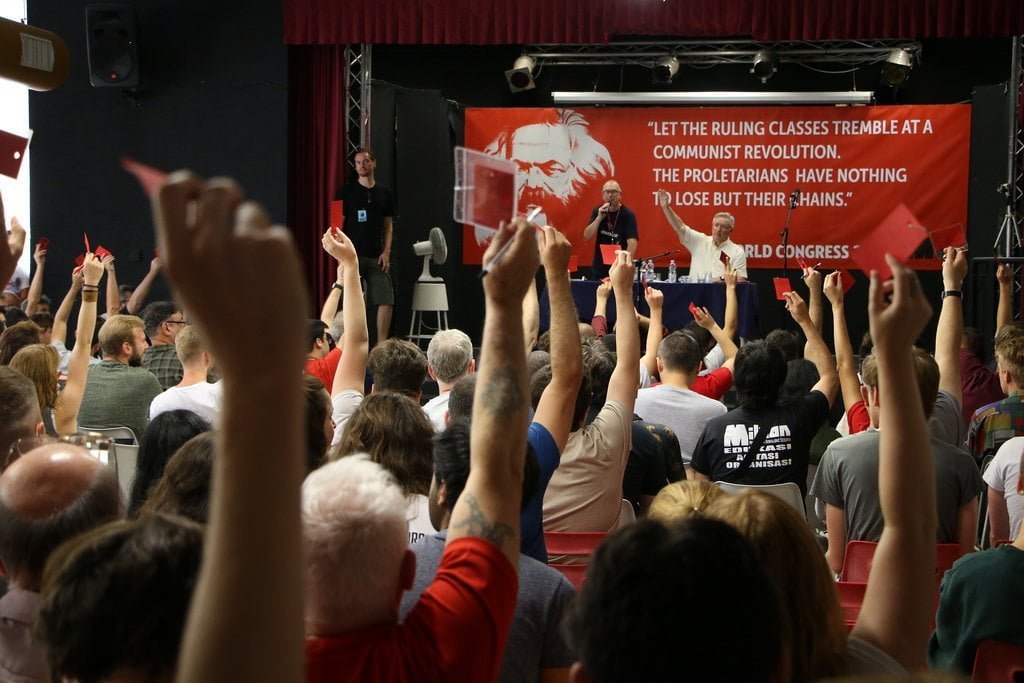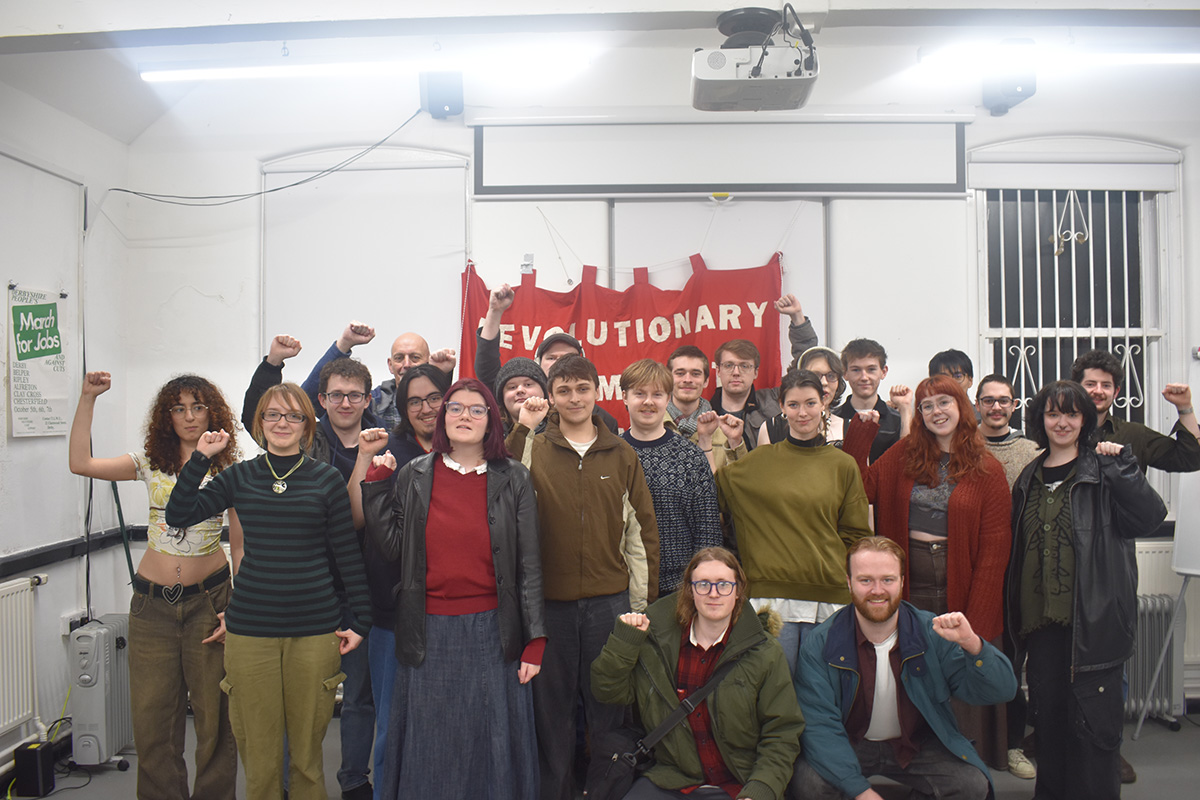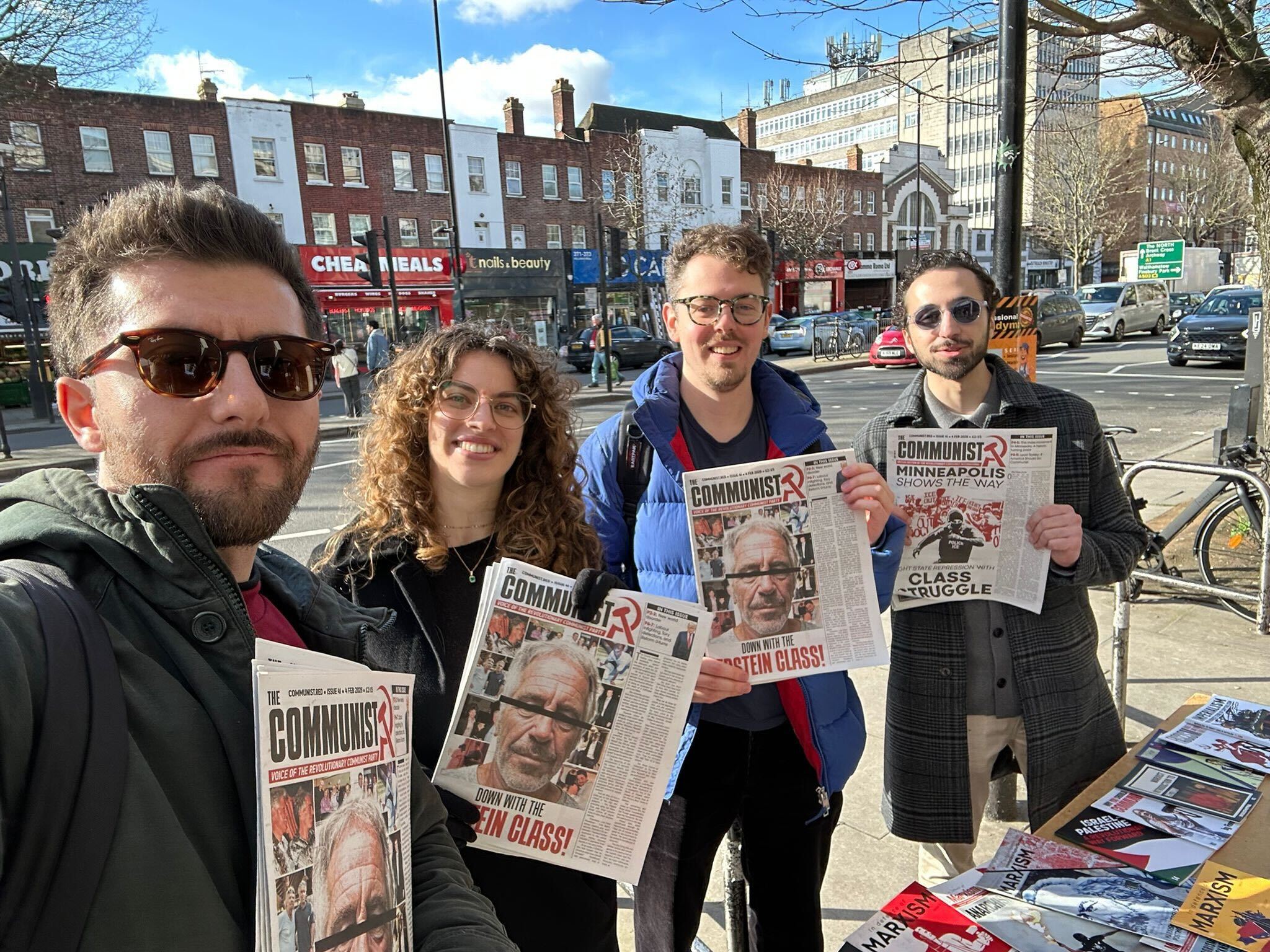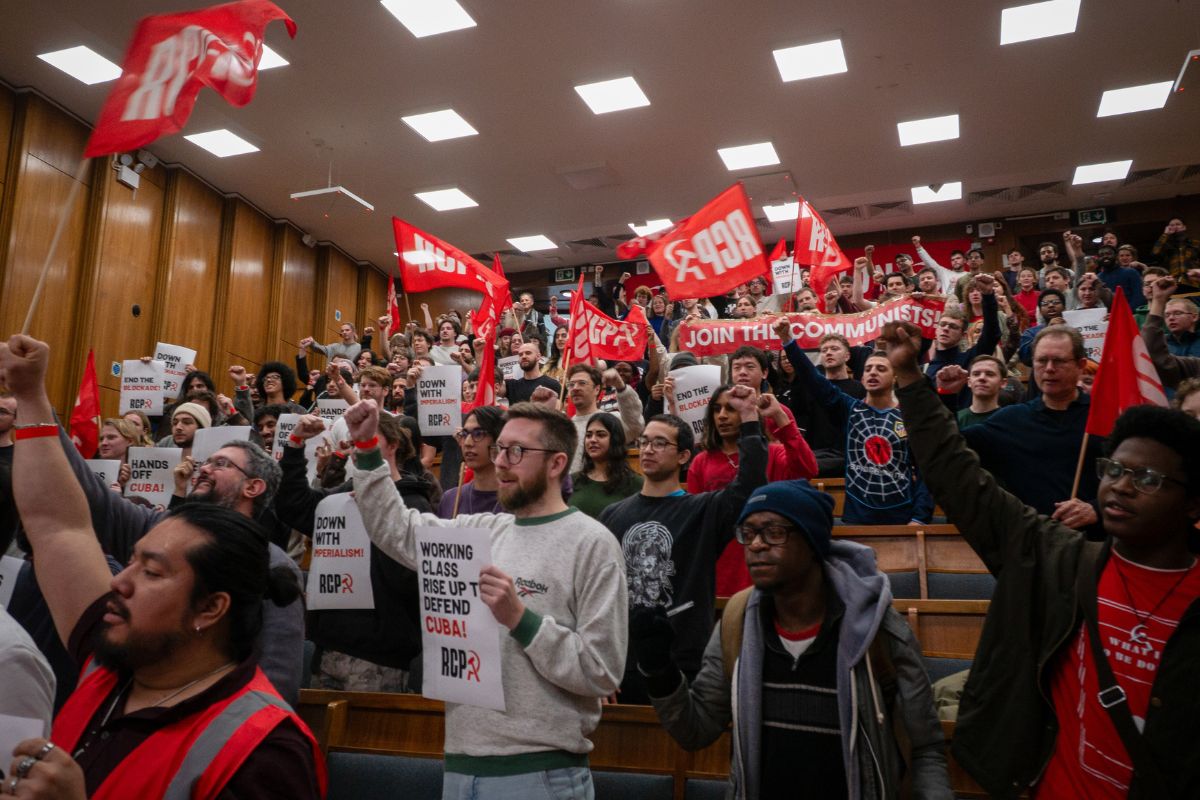The recent World Congress of the International Marxist Tendency marks a turning point in the efforts to build the forces of Marxism worldwide.
Between 24-29 July, 370 Marxists from more than 25 countries gathered in the Italian Alps for the 2018 congress of the International Marxist Tendency (IMT).
This was by far the biggest world event the IMT has ever organised. Despite the enormous difficulties in organising such an event, there can be no doubt that it was a tremendous success. Over the course of six days the congress discussed the turbulent world situation; the Marxist approach in the fight against oppression; as well as special sessions on events in Italy and Pakistan; and a full international organisational report. The political discussions revealed a superb political level existing across the whole IMT and a unity of will.
It is on this solid foundation of Marxist theory – combined with a professional attitude – that the inspiring growth of the IMT in the past few years has been achieved.
Since the last IMT world congress many sections have experienced fast growth. All sections have strengthened their structures, publications and ability to intervene effectively in the movement.
Comrade Marco La Grotta from Fightback, the Canadian section of the IMT, explained that there is no “magic formula” for this growth. Rather, it is down to the untiring education and training of a layer of professional revolutionaries who in turn become builders of the IMT.
Today the IMT is intervening in 41 countries around the world. In spite of all the growth experienced over the past years however, the organisation is still too small and too lacking in resources to take advantage of all of the incredible opportunities which are opening up.
Rather than simply lament this fact however, the congress showed the determination that exists across the IMT to overcome all obstacles and to be ready for the tasks posed by the deepest crisis capitalism has experienced since the 1930s. This was most eloquently expressed in the congress’ record collection. At last year’s world event, €70,000 were raised at an already outstanding collection. But this year the congress collection raised an incredible sum of over €100,000.
World perspectives
The congress began by analysing the world situation. The year 2008 will be seen for years to come as a turning point in world history. Since that crisis nothing has been the same. Each attempt by the capitalists to restore the economic equilibrium of the system through austerity and attacks on the living standards of the working class have undermined the social and political stability of the system. 10 years after the beginning of the crisis the capitalists don’t seem to have found any means by which to stabilise the situation. For the working class meanwhile, there has been no recovery of living standards.
Whilst the leadership of the trade unions and the threat of unemployment may depress industrial action in much of the world, there is nevertheless a subterranean rage developing everywhere, which is capable of exploding without warning anywhere. The consciousness of hundreds-of-millions of workers has been indelibly changed by the events since 2008.
The explosive, even insurrectionary movement that unfolded in Haiti in the weeks before the congress illustrates this point quite vividly. For years the people of this nation have been pillaged, raped and brutalised in every way by the imperialist powers through the UN, NGOs, charities and the like. The straw that broke the camel’s back was the attempt by the government to slash fuel subsidies: a measure that would plunge millions into utter desperation.
The United States in crisis
In the United States the crisis has expressed itself in the election of Donald Trump. This has resulted in cracks opening up between the president, and important sections of the ruling class and the state. The Republican Party has been utterly devastated by Trump’s victory. In truth the other main pillar of American capitalism – the Democratic Party – is in little better shape.
The crisis of the current period is utterly exposing the limits of US imperialism. Nowhere else is this more clearly visible than in the sharp contradictions in the Middle East, in which the American ruling class has entangled itself. Whilst Trump and one wing of the ruling class are trying to extricate themselves from the mess they have created in Syria with Russia’s assistance, another wing is determined to prevent any rapprochement.
Furthermore, an extremely deep schism has opened up in the American ruling class between the proponents of free trade and a protectionist wing. Far from being ‘mad’ or a ‘Russian agent’, Donald Trump represents an old trend in American capitalism: he is an isolationist.
Clearly some in the American ruling class would like to see tariffs imposed on America’s competitors: particularly aimed at high-tech goods from China. Others though can see all too clearly that once a tit-for-tat trade war is set in motion, it won’t be so easy to stop it. It was just such a trend towards protectionism that heavily contributed to throwing the world economy into a depression in the 1930s. Such a scenario threatens to repeat itself now on an altogether more gigantic scale.
While Trump is not the cause of the growing protectionist tendencies on a world scale, he is certainly accelerating them. However, the underlying cause of this crisis is the suffocation of the productive forces by the two main barriers to progress under capitalism: private property and the narrow boundaries of the nation state.
Europe
In the current period however, it is clear that the centre of the world revolution has shifted to Europe. In Greece, eight years of crisis and austerity have caused the economy to shrink by 25 percent. And yet despite all the cuts, the debt-to-GDP to ratio in Greece has increased from 159 percent to 180 percent. In France we have seen mass strikes against Macron’s counter-reforms. In Spain we have seen Rajoy overturned. Even in Germany, the old parties are in crisis.
But by far the biggest headache for the capitalists of Europe is the situation in Italy, which threatens to explode wide open. With €2.3tn of debt hanging around the neck of the state, Italy represents a crisis that is orders of magnitude greater than that in Greece. With the rise of the Five Star Movement-Lega government, a new period of even greater instability has opened in Italy.
Wherever we look around the world then we see the same pattern. Years of attacks on the working class have not fundamentally solved the underlying economic malaise. However, workers are reaching the end of their tethers. Political polarisation is destroying the so-called ‘centre-ground’. Meanwhile, in one country after another splits are emerging in the ruling class. All of these symptoms augur a period of upheaval and revolution.
Our task is to build a Marxist tendency of such strength, both quantitative and qualitative, that can prepare the way for a revolutionary party able to lead the working class to the seizure of power and the socialist transformation of society.
Marxism versus identity politics
 On the third day of the congress, Fred Weston introduced a discussion on the Marxist approach to the question of fighting against oppression, and for the the liberation of oppressed groups.
On the third day of the congress, Fred Weston introduced a discussion on the Marxist approach to the question of fighting against oppression, and for the the liberation of oppressed groups.
The defeats of the working class from the late 1970s until the 1980s caused a mood of pessimism to penetrate a layer of left intellectuals – particularly from the camp of Stalinism. In order to justify their own demoralisation they capitulated to the ideological counter-offensive that followed those defeats and the collapse of the Soviet Union.
The post-modernists who led the charge against Marxism rejected any notion of ‘progress’ and ‘science’, and they rejected with scoffing arrogance the possibility of achieving a revolutionary transformation of society. Through the conveyor belt of the university lecture theatre, they have sought, and partially succeeded, in infecting a new generation of left-wing youth with their own pessimism.
These reactionary ideas have had their offshoots in the proliferation of all forms of divisive identity politics: from intersectionality, to queer theory, to various strands of feminism.
At base, all of these forms of identity politics have in common an idealist conception of oppression. Rather than analysing the objective, material basis of oppression, their start and end point is the subjective experience of oppression. Rather than seeking a revolutionary overthrow of the capitalist system, they seek to ‘liberate’ the oppressed through changes in language or ‘discourse’, etc.
In so doing, they provide the highest service to the capitalist class. Instead of trying to unite the oppressed in a class struggle against capitalism, they end up dividing the movement into a privilege hierarchy with an infinite number of categories. Such ideas, however ‘radical’ the language employed, can only have the most reactionary consequences for the movement, pitting men against women, black people against white people, etc.
The discussion covered a range of experiences from across the world. Of particular interest were contributions from our Spanish comrades, who brought valuable experience from the “feminist strike” of 8 March this year. First-hand experience of the role played by advocates of identity politics was also given by comrades from Belgium, Canada, Britain and elsewhere.
In the end, the congress was unanimous in the need to defend Marxism against these divisive and pernicious ideas.
The crisis in Italy and the role of the Marxists
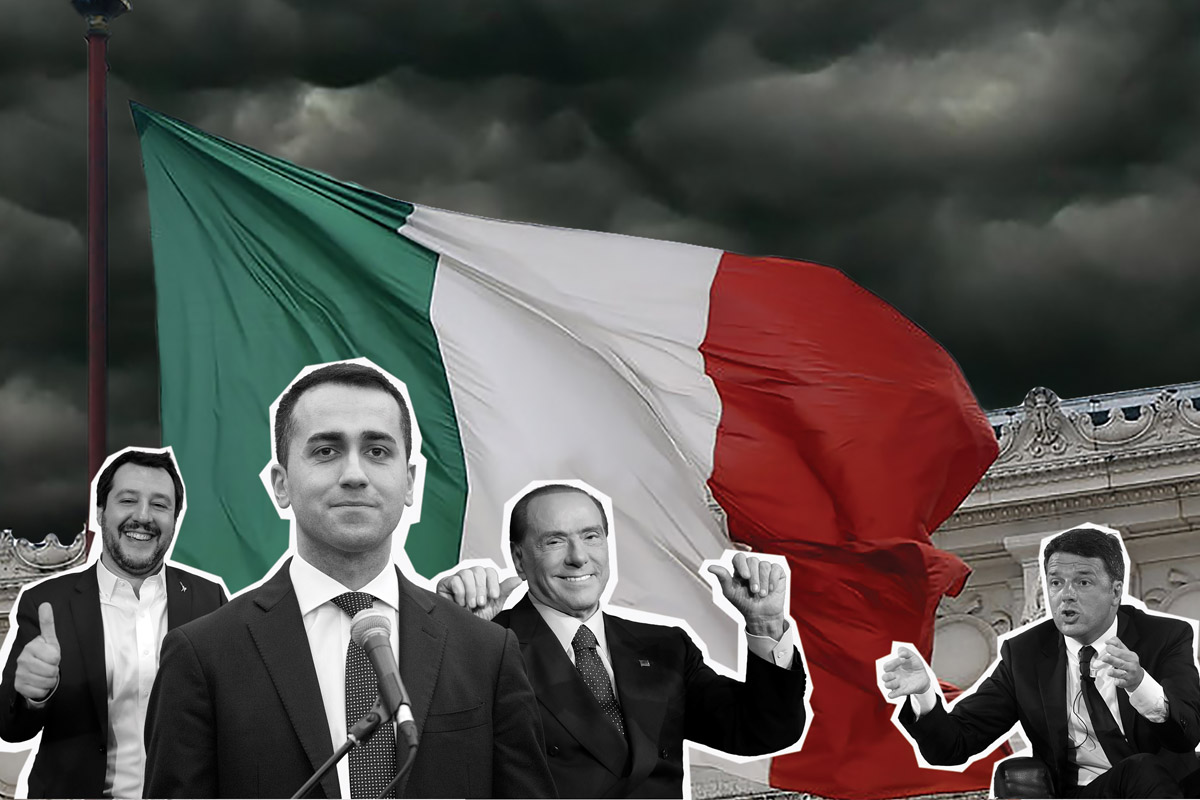 Throughout the week, one theme stood out: that the Marxists seem to be the only optimists in the world! The capitalist press, academia, the official labour movement leaders – all seem to be seeped in pessimism; the IMT appears to be alone in having a well-founded optimism.
Throughout the week, one theme stood out: that the Marxists seem to be the only optimists in the world! The capitalist press, academia, the official labour movement leaders – all seem to be seeped in pessimism; the IMT appears to be alone in having a well-founded optimism.
No session illustrated this point better than the commision on the crisis of Italian capitalism.
Far from emerging from the crisis in 2008, things have gone from bad to worse in Italy. GDP-per-capita today remains below what it was at that time, and unemployment among the youth stands at 30 percent. Life is simply becoming unbearable for the majority of poor and working-class people.
Since 2008, ‘technocratic’, right-wing, and supposedly ‘left-wing’ governments have come and gone. All of them have carried out the same policy, however: one of brutal austerity cuts in the interests of international capitalism. However, this is still not enough for the ruling class. The result has been that all the main parties identified with the capitalist establishment – from Berlusconi’s party to the Democratic Party (PD), have all seen a collapse in their support.
The PD, in particular, has seen its authority battered. Despite its ‘left-wing’ credentials it has represented over the last period the most reliable tool for carrying out the austerity policies demanded by the Italian capitalists and the EU.
When Renzi took office he attempted to carry out huge amounts of cuts and counter-reforms in a very short period of time. The main trade union, the CGIL, for its part did nothing to resist these attacks.
The result was not only a collapse in support for Renzi and his government – smashed in the constitutional reform referendum of 2016 and the general election of 4 March – but the collapse of all the parties standing to the left of the PD, which took part in class-collaborationist policies or else failed to present a credible alternative to austerity. This left the ground open for the rise of the Five Star Movement (M5S). The CGIL too has suffered a crisis, being challenged by smaller left-wing unions like the Unione Sindacale di Base (USB).
Italy has now entered a unique situation for all the classes in society. The working class – which once boasted a two-million-strong Communist Party – is now deprived of any political representation. The Italian ruling class is also entering new territory. For the first time it is entering a period in which it has no ‘reliable’ party to rest upon.
Looking around for an alternative, millions of workers have put their hopes in new formations like the Five Star Movement. Despite loud, anti-establishment rhetoric however, this party too will be unable to make good on any of the promises it made before the elections.
Whilst many on the left have lamented the collapse of the so-called left parties in Italy, and see only a bleak landscape ahead, we as Marxists can see that these events are storing up a mighty social explosion for the near future.
It may take six months, it may take a year or two, but inevitably the M5S will break; the anger in Italian society will burst onto the scene; and the Italian working class will rediscover its militant, revolutionary traditions.
This is the perspective that the Marxists in Italy, organised around the paper Rivoluzione, are preparing for.
Pakistan
 An inspiring highlight of the congress was the session on Pakistan. The Pakistani comrades leading the discussion painted a graphic picture of the crisis through which Pakistan is heading.
An inspiring highlight of the congress was the session on Pakistan. The Pakistani comrades leading the discussion painted a graphic picture of the crisis through which Pakistan is heading.
Since 1947, Pakistan has been a pawn of US imperialism and the centre of reaction throughout the region. However, in recent years ties between US imperialism and Pakistan have reached a low ebb, with China increasingly intervening in the country. China has developed key strategic investments in the country through the China-Pakistan Economic Corridor (CPEC) project.
All other political trends in Pakistan, from left to right, have lauded these closening ties with China. Only our tendency has seriously analysed these new trends and dared to point out the imperialistic character of the growing interests of China in Pakistan.
The deepening crisis of Pakistani capitalism is now becoming increasingly apparent. In the last seven months, the rupee has lost 20 percent of its value. Furthermore, unemployment is skyrocketing. As the crisis in the Gulf states has deepened, remittances too have dried up and thousands of workers have begun returning from Saudi Arabia.
Under these circumstances the Pakistani ruling class will have to go to the IMF on its knees, begging with bowl in hand, whilst the US is concerned that any bailout will be used to pay back Chinese lenders!
None of the political parties have a programme that can ameliorate the living hell that the ordinary people of Pakistan experience on a daily basis. As such, the masses have turned their backs on all of them. Whilst Imran Khan’s PTI has come out on top in the recent elections, it too offers nothing for the masses.
However, despite the lack of organised political expression, it is clear that the workers and poor have reached the limit of what they can take. As such, we have seen mass movements of workers and students in recent years. Above all, there was the recent, massive movement of the oppressed Pashtun people, which shook the Pakistani ruling class to its foundations.
Our comrades intervened vigorously in this movement against the oppression that the Pashtun people have suffered. They argued in favour of linking up the struggle with that of all oppressed nationalities and groups. Above all, they called for the Pashtun movement to unite with the struggle of the working class to overthrow capitalism in Pakistan and across the subcontinent.
As we have previously reported, our comrades have come under attack by the Pakistani state on a number of occasions. Under these circumstances, the comrades demonstrated a steel will and a courage that has been an inspiration for all comrades of the international, and which electrified the congress.
Retying the knot of history
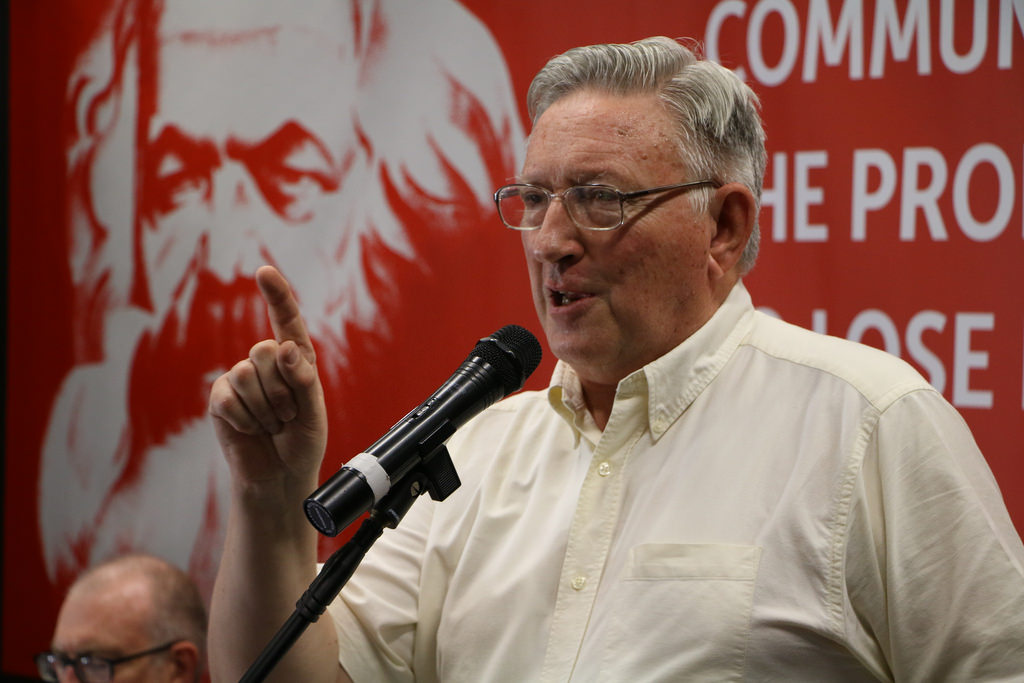 In the contributions given by comrades from one country after another, a pattern emerged. Throughout the world the leadership of the workers’ movement, whether of the left or right-wing reformist variety, is being severely put to the test and their policies are being exposed.
In the contributions given by comrades from one country after another, a pattern emerged. Throughout the world the leadership of the workers’ movement, whether of the left or right-wing reformist variety, is being severely put to the test and their policies are being exposed.
On the other hand, the attempts by the capitalist class to go on the offensive and carry out their austerity agenda are further destabilising capitalism and giving a greater impulse to the class struggle.
Since the post-war period, the forces of Marxism have been reduced to a small minority on an international scale and have therefore been unable to offer an alternative leadership. Referring to this isolation in the past period, Alan Woods remarked, “We have seen a number of occasions where the thread of history has been broken.”
In the dark period of fascist and Stalinist reaction in the 1930s, only Trotsky and his followers in the Fourth International kept the untainted banner of Marxism aloft. After the death of Trotsky, the incompetent leadership of the Fourth International shipwrecked that organisation.
Only a tiny handful of individuals in Britain around Ted Grant kept the genuine ideas of Marx, Engels, Lenin and Trotsky alive. Their efforts are today vindicated in the successes of this international. To an electric mood, Alan Woods closed the Congress with the following words:
“Trotsky’s final words as he lay on his deathbed, struck down by a Stalinist agent, were, ‘I am confident in the victory of the Fourth International. Go forward.’
“With this congress we retie the knot of history. The real Fourth International is here, in this room!”

